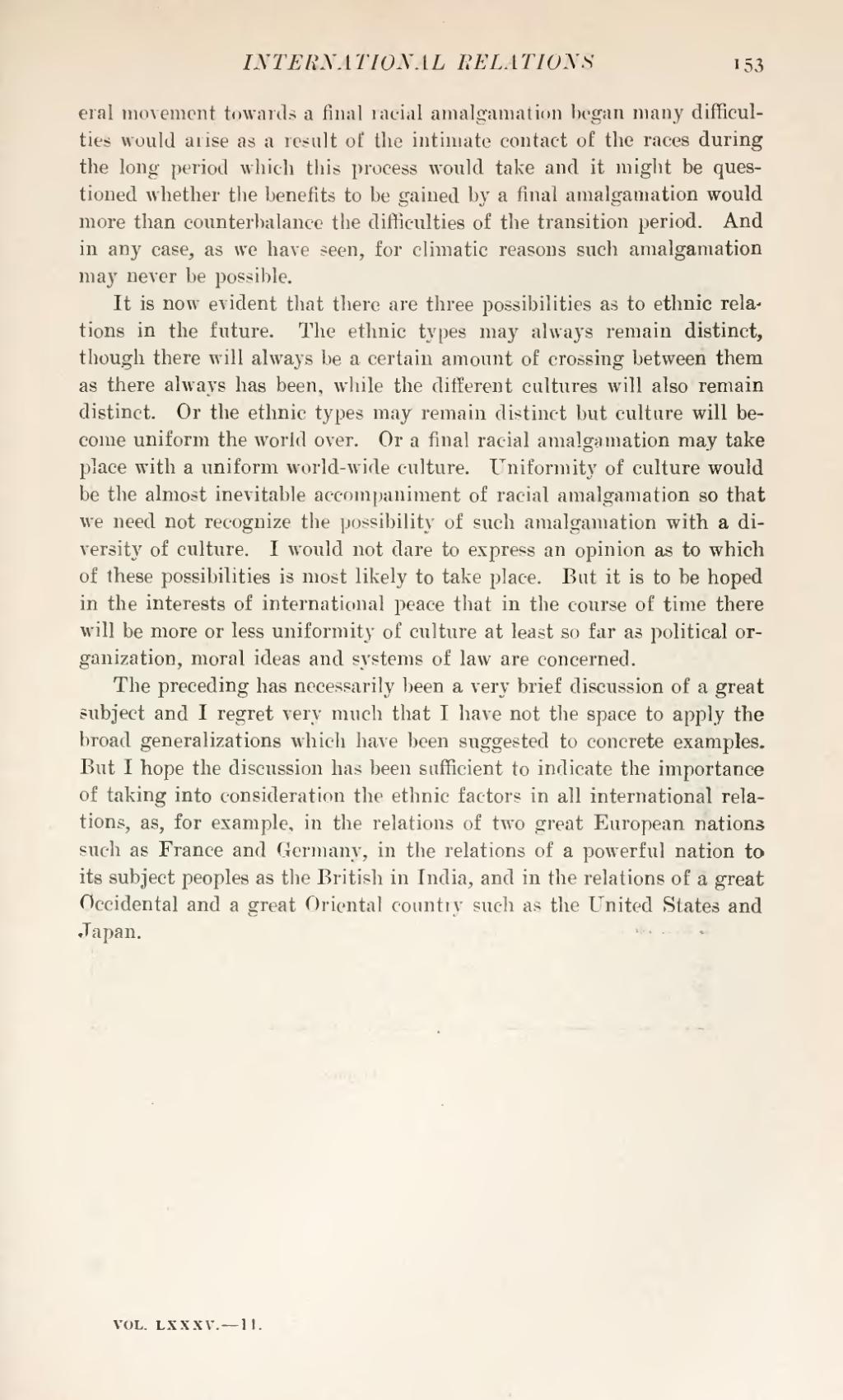eral movement towards a final racial amalgamation began many difficulties would arise as a result of the intimate contact of the races during the long period which this process would take and it might be questioned whether the benefits to be gained by a final amalgamation would more than counterbalance the difficulties of the transition period. And in any case, as we have seen, for climatic reasons such amalgamation may never be possible.
It is now evident that there are three possibilities as to ethnic relations in the future. The ethnic types may always remain distinct, though there will always be a certain amount of crossing between them as there always has been, while the different cultures will also remain distinct. Or the ethnic types may remain distinct but culture will become uniform the world over. Or a final racial amalgamation may take place with a uniform world-wide culture. Uniformity of culture would be the almost inevitable accompaniment of racial amalgamation so that we need not recognize the possibility of such amalgamation with a diversity of culture. I would not dare to express an opinion as to which of these possibilities is most likely to take place. But it is to be hoped in the interests of international peace that in the course of time there will be more or less uniformity of culture at least so far as political organization, moral ideas and systems of law are concerned.
The preceding has necessarily been a very brief discussion of a great subject and I regret very much that I have not the space to apply the broad generalizations which have been suggested to concrete examples. But I hope the discussion has been sufficient to indicate the importance of taking into consideration the ethnic factors in all international relations, as, for example, in the relations of two great European nations such as France and Germany, in the relations of a powerful nation to its subject peoples as the British in India, and in the relations of a great Occidental and a great Oriental country such as the United States and Japan.

